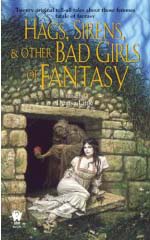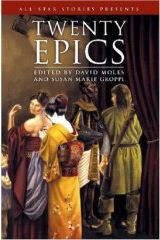I’ve been a tennis fan for years, and the other day I came across a quote that reminded me how all major pursuits — whether they be writing, sport, or something else entirely — take similar levels of focus and determination to be successful. Andre Agassi, a great tennis champion for the past twenty years, and a man who underwent an amazing transformation from a wild and undisciplined youth that was all about image to a consummate professional whose dedication to training, fitness, and improvement was unrivaled, recently announced he is retiring. He had this to say to younger players:
“Find a way to get more out of yourself, find a way to improve,” Agassi said. “And keep pushing your standard and hope that separates you from the rest. It’s a competitive environment out there. It’s an international sport with a lot of great players who pour a lot of themselves into what they do, and my advice to each of them always has pretty much been to just to keep your head down and only think about getting better regardless of where you’re ranked, regardless of what you’re going through.”
If you tweak this quote just a bit, it could have just as easily been said by an old writing pro to up-and-coming writers. I get a lot of inspiration from people like Andre Agassi — people who came to a critical juncture in their lives when they decided they weren’t going to float by on talent alone any longer, that they were going to give their profession everything they had so they wouldn’t have to live with regret. Athletes have a much narrower window of opportunity (thirty-five, Agassi’s age, is ancient for a tennis player), which is the one major advantage that writers have. They can be just hitting their stride at thirty-five. Heck, they can just be hitting their stride at seventy-five . . .
Writing Round-Up:
As far as current projects go, I’m about twenty thousand words in on a new book that I’m excited about, a novel of dark suspense with a few elements of the fantastic. Think Dean Koontz and Stephen King — or at least, that’s the general feel I’m going for. In fact, the main character is similar to the one in my short story, “The Grand Mal Reaper,” which appeared in the August 2006 issue of Realms of Fantasy. I seem to really be drawn to characters who have some kind of extraordinary ability that can be both a gift and a curse. Other recent appearances:
- “The Tiger in the Garden” appeared in the June 2006 issue of Asimov’s
- A rather unusual “story” with me as the main character, “Epic, The,” appeared in the Twenty Epics anthology in July.
- “Heart of Stone” appeared in the anthology Hags, Sirens, and Other Bad Girls of Fantasy

Recommended Reads:
I haven’t done this in a while, so there’s a few more than usual . . .
- The Autobiography of Malcolm X by Malcolm X and Alex Haley – I’d always been meaning to read Malcolm X’s autobiography, and he was a much more complicated man than my most people believe, especially toward the end of his life. It’s sad that his transformation from an extremist National of Islam leader to a more nuanced, thoughtful thinker on racial issues was cut short.
- Lightning by Dean Koontz – A great suspenseful time travel story that takes some unusual twists. Definitely one of Koontz’s best.
- Flights of Passage by Samuel Hayes – Haye’s memoir of being a World War II aviator was a great coming-of-age story.
- Like Lambs to Slaughter by Lawrence Block – A short story anthology of one crime fiction’s premier writers.
- Not So Picture Perfect by Jan Eliot – A wonderful cartoonist who actually lives not far away from me in Eugene, Oregon.
- Crusader’s Cross by James Lee Burke – He really lives up to his reputation as the Faulkner of crime fiction in this one.

